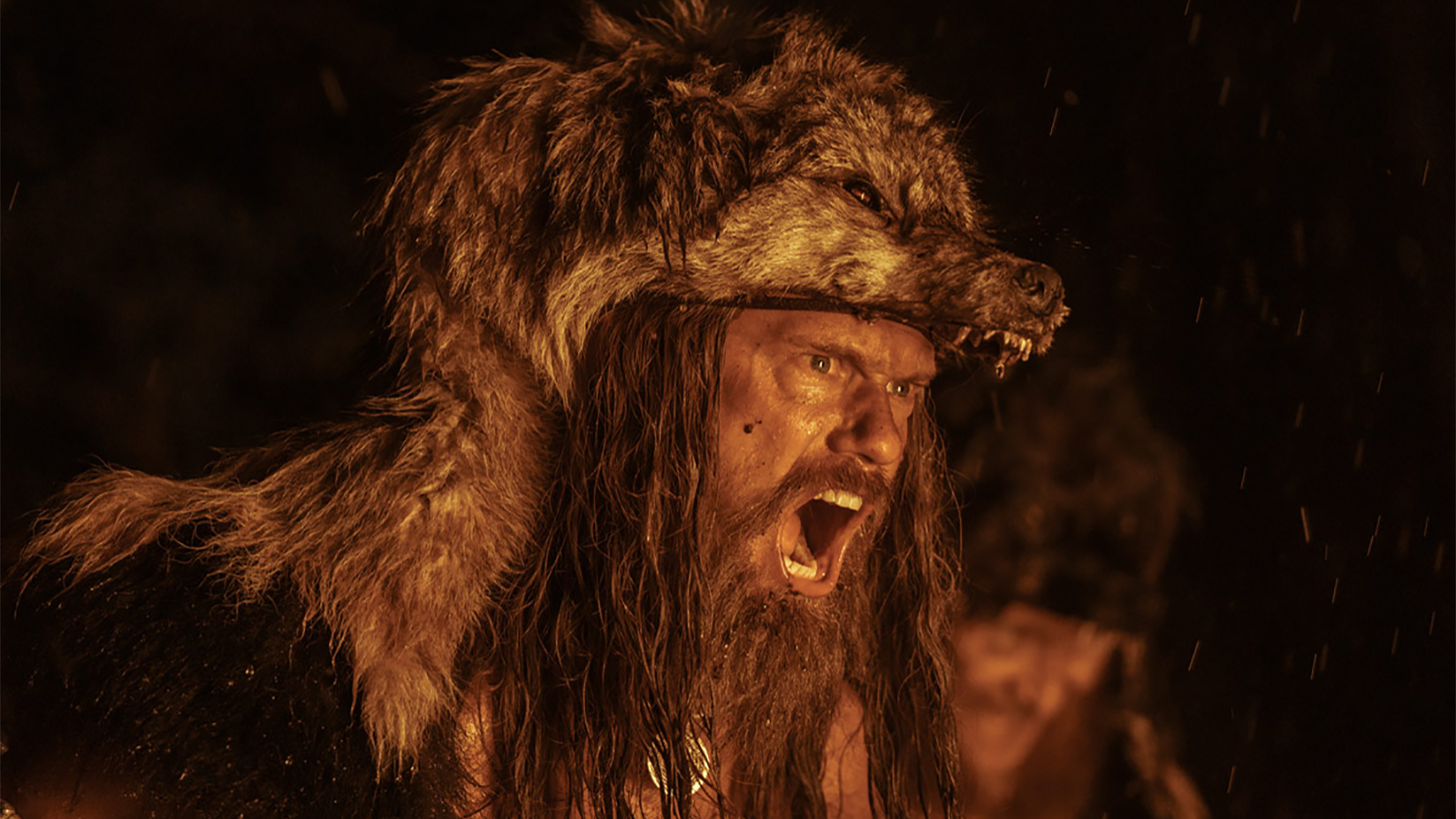Review: The Northman
This article appeared in the April 14, 2022 edition of The Film Comment Letter, our free weekly newsletter featuring original film criticism and writing. Sign up for the Letter here.

Early in The Northman, a father forces his young son to thrust his hand into an open wound in the elder’s stomach. As the boy reaches in, he passes into the ether: suddenly, he witnesses a pantheon of his royal ancestors all connected by a branch-like umbilical cord to a cosmic family tree. In each of Robert Eggers’s three feature films to date, the director hones in on these ruptures in the fabric of the world, waiting for something mysterious and otherworldly to break through. Put another way, Eggers is interested in the extrasensory: what some might call liminal states of mind, and others the supernatural. Seemingly the only way Eggers’s characters can pierce the veil separating one reality from another is through some kind of ecstatic experience, which itself can only be reached through extreme trauma or disruption.
In The Northman, Eggers’s latest period piece set across Scandinavia between 895 and 950 A.D., we are presented first with a static frame: a roiling volcano looms in the distance as a gravelly voice calls to the Norse gods. The tale here is one of brutality, betrayal, and destiny—the origin story of Viking warrior-prince Amleth, the historical figure who would eventually inspire Shakespeare’s Hamlet. The film has all the trappings that come with such legendary foundations: intricately crafted costumes, historically accurate sets and weapons, well-enunciated dialogue in ancient languages, and paeans to a world ruled by tradition. But The Northman is not a straight sword-and-sandals adaptation of the Icelandic and Norse sagas from which it draws its cosmology. In Eggers’s hands, it is at once a phantasmagoric quest filled with spirits and magic and a gory, cruel, sometimes repetitive hero’s journey that, because of its checkpoint-like structure (Amleth is often bouncing around between mysterious characters in search of items and bits of backstory), feels at times like a video game.
When Amleth’s father, King Aurvandill (a delightfully brusque Ethan Hawke), is slain by uncle Fjölnir (Claes Bang), the impetuous kid swears vengeance. Years go by and the young boy (Oscar Novak) once destined for the throne has become an animalistic warrior (Alexander Skarsgård) with deadened eyes and a cold heart. Off the field, Amleth says little, with Skarsgård’s gruff, preverbal grunting evoking Tom Hardy as Mad Max. In battle, he wears a wolf’s head to channel that predator’s ferocity. Such cross-species transformations are common in Eggers’s films—particularly The Witch (2015), where the Devil metamorphoses from goat to man—but here, the filmmaker more explicitly limns the dividing lines between man and beast, and mortal and deity. Throughout The Northman, there are multiple rituals centered on the animal nature of human beings, either celebrating man’s ability to tame base instincts or calling on a kind of primitive, beast-like inner strength. In one early scene, Amleth and his father enter a house of worship, where they are asked to prove their humanity. In response, Aurvandill burps and Amleth farts, turning natural physiological occurrences into markers of a distinct humanity by enacting them on command.
We know that there are only a few ways for this kind of archetypal quest of vengeance to end. But Eggers draws out the space between each killing and each narrative turn, hammering home both the futility of Amleth’s endeavor and the necessity of it. Revenge is painted as a foolish, life-draining act that earns Amleth powerful enemies. Ironically, each of our hero’s actions begets the next: if his bloodline is to live on, he must see his mission through even if, as those he cares about perish, he starts to regret his decisions. Some might find the simplicity of this kind of “Point A to Point B” plot frustrating; however, done well, the joy of a movie like The Northman lies in how it anticipates our familiarity with its narrative arc while subverting our moral expectations. While The Witch and The Lighthouse (2019) traffic in the experiential, The Northman focuses on the inevitable, which makes it Eggers’s most linear and therefore most accessible film. In his version of the classic revenge tale, magic only goes so far: to reach the sublime (in the film’s case, Valhalla), you have to pass through the meat grinder of earthly existence.
Nicholas Russell is a writer from Las Vegas.







